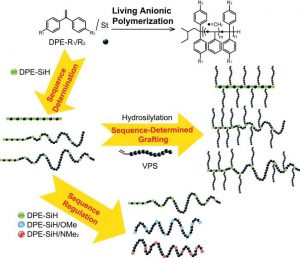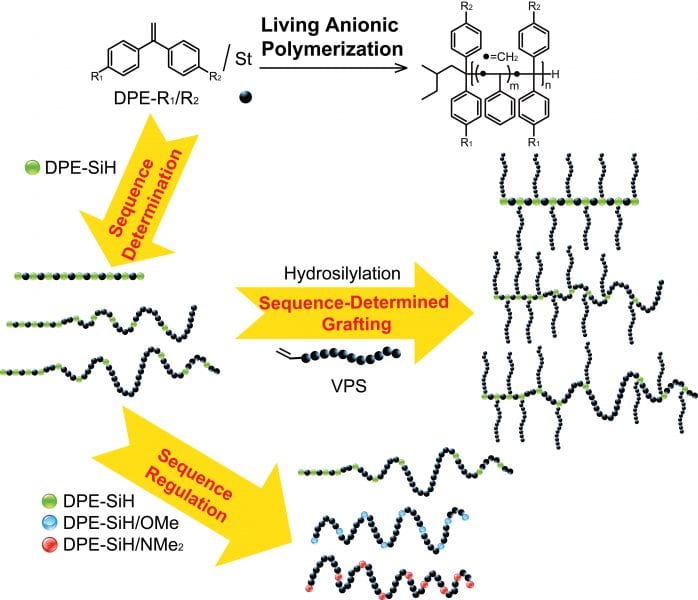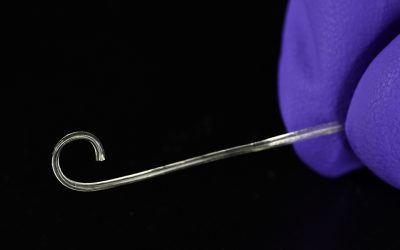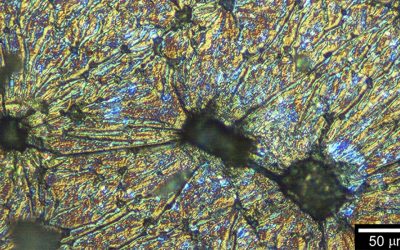 Macromolecules with specific sequential arrangements of the monomer units have several amazing features, similar to DNA and RNA. As a result, polymer chemists have concentrated on the synthesis of sequence-controlled polymers, regarded as the “Holy Grail” of polymer science.
Macromolecules with specific sequential arrangements of the monomer units have several amazing features, similar to DNA and RNA. As a result, polymer chemists have concentrated on the synthesis of sequence-controlled polymers, regarded as the “Holy Grail” of polymer science.
In a Talent article recently published in Macromolecular Chemistry and Physics, Hongwei Ma and coworkers describe the status-quo of recent advances in sequence control in polymer synthesis. They then report on the preparation of sequence-controlled polymers by anionic copolymerization of styrene and 1,1-diphenylethylene (DPE) derivatives.
The authors describe the influence of the comonomer feed ratio on the microstructure of the formed copolymers. Using the timing sample method, they found that both alternating and gradient copolymers can be synthesized from different styrene/1,1-diphenylethylene ratios.
The results open up new perspectives for the design of novel functional sequence-controlled polymers.
About the author
Talent is an article type published in in Macromolecular Chemistry and Physics and dedicated exclusively to bright scientists in the first years of their independent career. Young scientists who are developing new, original ideas in any field of polymer science are invited to provide an overview of their own work.Interested in the Talent article collection? Then click HERE.


 Hongwei Ma received his Ph.D. degree from Dalian University of Technology (DUT, China) in 2011. He conducted his postdoctoral work at the University of Akron (USA), mentored by Professor R. P. Quirk in 2012. In January 2013, he became a Lecturer in the School of Chemical Engineering at the DUT. His research interests include the theoretical studies on the living anionic polymerization under high vacuum conditions, the synthesis of sequence-controlled functionalized polymers, and the facile synthesis of precisely polymeric architectures based on the living anionic polymerization method.
Hongwei Ma received his Ph.D. degree from Dalian University of Technology (DUT, China) in 2011. He conducted his postdoctoral work at the University of Akron (USA), mentored by Professor R. P. Quirk in 2012. In January 2013, he became a Lecturer in the School of Chemical Engineering at the DUT. His research interests include the theoretical studies on the living anionic polymerization under high vacuum conditions, the synthesis of sequence-controlled functionalized polymers, and the facile synthesis of precisely polymeric architectures based on the living anionic polymerization method.














